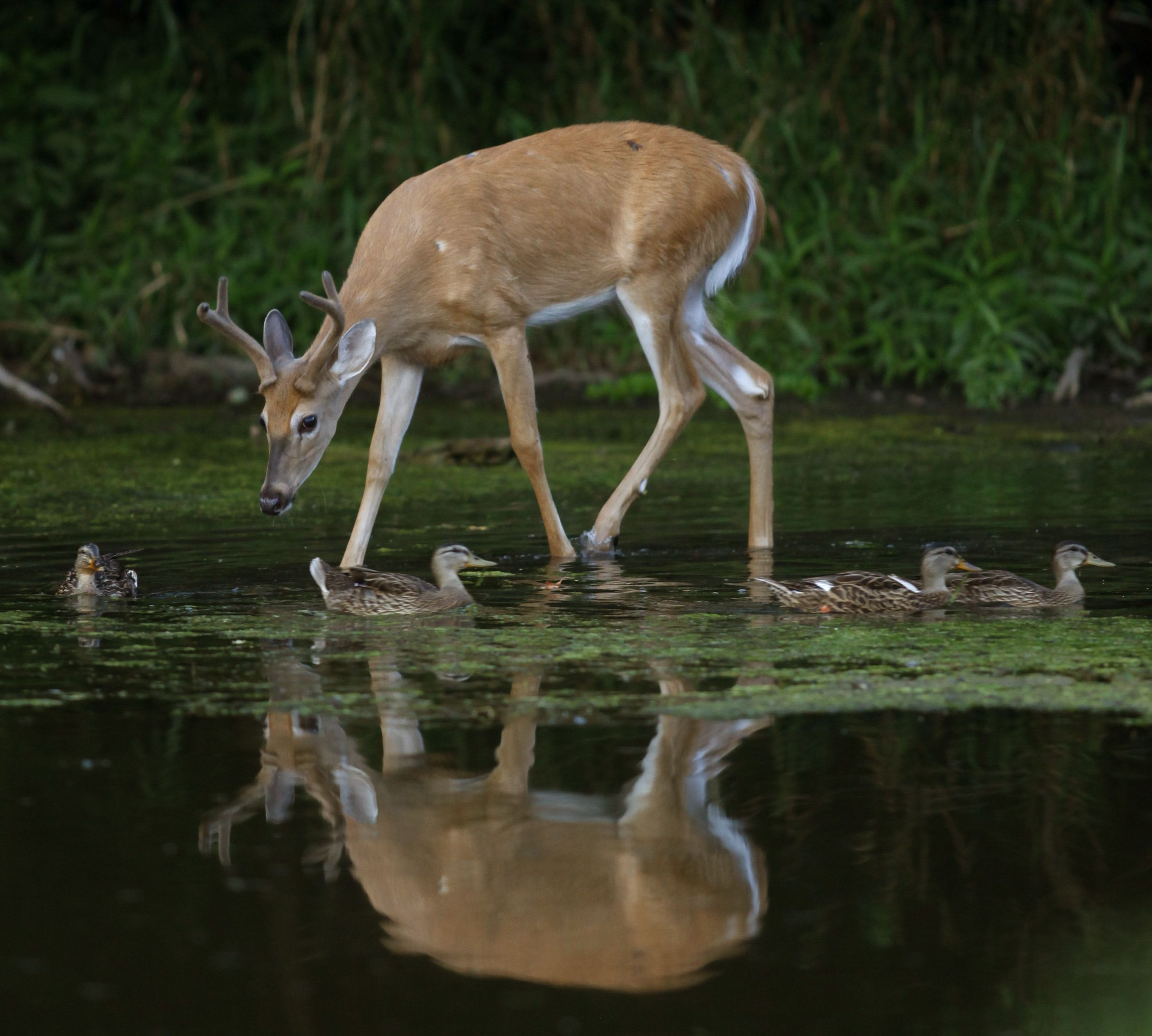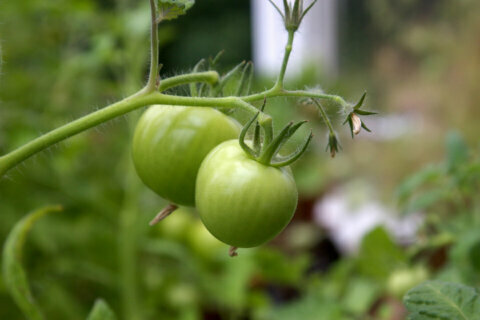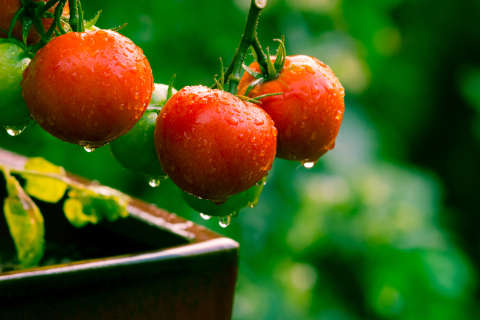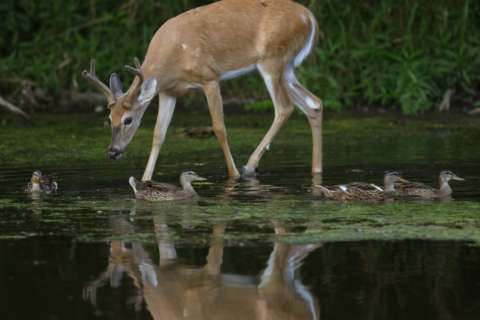
WTOP Garden Editor Mike McGrath answers your questions about hornets’ nests, hungry and horny deer, and planting roses.
What would Elmer Fudd do?
Sia in Upper Marlboro writes: Attached are photos of a wasp nest that has been around since the summer. We didn’t knock it down for fear of angry wasps. Is now a good time to knock it down? And how do I prevent it from returning?
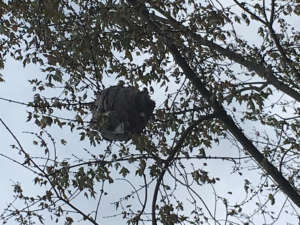
The pictures that Sia sent show a classic hornet’s nest up in a tree. It was wise not to knock it down back when the occupants were active — but then, why would you want to knock it down at all? The hornets that populate these nests are eating pest caterpillars and have no interest in people. (Unless those people try and pull an Elmer Fudd, then yes, they will attack you. But you started it.)
The best thing to do when you see a hornet’s nest is nothing. “Nothing” is somewhere between often and always the best choice when you face a non-challenge like this nest.
‘Return of the Hornets!’? Not likely.
Sia in Upper Marlboro sent us some photos of a classic hornet’s nest up in a tree and asks: How do I prevent it from returning?
Once again, the answer is: Do nothing.
The hornets inside are dying off now, and the nest will be devoid of life after a month or so of freezing weather. (The same is true of yellowjacket nests underground.)
If you feel you must waste your time on removal, you can take it down after January. (If you do take it down, give it to a schoolteacher who can then slice it open and show the class how cool these constructs are inside.)
But you can also just leave it up there. These and other “social hornets” build new nests every year; the old nests are never reused.
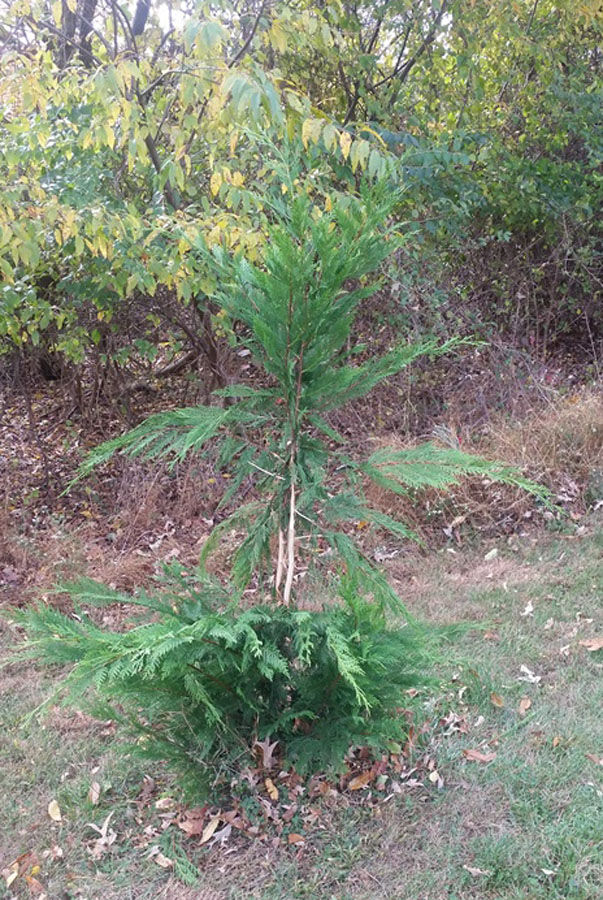
The heartbreak of horny deer
Connie in Reston writes: Deer have “debarked” my pine trees; planted last year, the trees are around 5 feet tall. The damage is roughly a 12-inch-wide scar on each tree, about 2 to 3 feet above ground. What’s the best way to save my trees? Any ideas how I can prevent this in the future?
Connie’s photos show some pretty sad-looking little trees that were left unprotected out in the open, and thus, destined to be deer, mouse or rabbit candy in one way or another.
The first answer is that they can’t be saved if male deer removed a complete circle of the bark while “velveting off” their antler coverings with vigorous rubbing. And even if the circle isn’t complete and they do survive, they will likely always look sad — so I would plan to replace them in the spring.
Protect new plants from deer — and mice, voles, rabbits …
Young bucks “velveting” their antlers against young trees often cause damage that’s almost certain to be fatal. And if it isn’t horny, young bucks rubbing, it’ll be both sexes eating the tender new growth and/or rabbits, mice and/or voles attacking the tasty young bark down below.
The best defense for newly planted (two years or less) and all especially important trees and shrubs is a welded wire cage placed around the plants to protect them — especially over the winter, when natural food is scarce for the wild things.
Your other option is to spray a high-strength deer repellent down low for the vermin, and then spray heavily again at “browsing height” — 2 to 3 feet off the ground — to try and deter biting by Bambi.
Ah, but here’s the rub: Sprays won’t stop those horny bucks from rubbing away. If you want complete protection, cage the plant and spray down low to keep small critters at bay.
Plant roses now — or lose them later
Ms. Simpson in Riverdale Park writers: I just purchased two rose bushes. Is it too late to put them into the ground?
No, it is not too late. And perhaps, more importantly, there isn’t really any other option for the health of the plants.
- Choose an area with good sun — especially morning sun — and dig holes that are wide but not deep.
- Refill the holes with only the soil you removed; do not “improve the soil” in the holes with peat or other seemingly-good ideas.
- Then, mulch around the plants with an inch or two of compost or shredded leaves — not any kind of wood or bark mulch and not whole leaves.
- Then, just leave them alone for now. Give the plants a gentle pruning after new growth appears in the spring and rosy your future should be.
Mike McGrath was editor-in-chief of ORGANIC GARDENING magazine from 1990 through 1997. He has been the host of the nationally syndicated Public Radio show “You Bet Your Garden” since 1998 and Garden Editor for WTOP since 1999. Send him your garden or pest control questions at MikeMcG@PTD.net.

